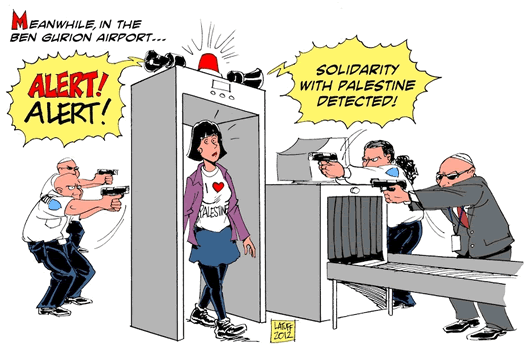Tag: Freedom of Access
-
Israel is paranoid about pro-Palestinian activists
by Gideon Levy 12 April 2012 | Haaretz Israel will not stand idly by as thousands of activists prepare to arrive on Sunday; it will not miss an opportunity to look ridiculous in the eyes of the world. And with what shall we frighten the Israeli public in advance of the seventh day of Passover?…
-
Passover violence in Occupied Al Khalil
by Paige 10 April 2012 | International Solidarity Movement, West Bank The Israeli army enforced a system of extensive closures, detentions, and violence against Palestinians and internationals activists during the Jewish holiday of Passover in Al Khalil (Hebron). The army closed off the busy Beersheba road to allow Jewish settlers to visit the tomb of…
-
The implications of arbitrary Israeli military night raids in Al Khalil
by Mira, Rune and Paige 19 March 2012 | International Solidarity Movement, West Bank With the change of the Israeli army brigades last week, it has not been quiet in Al Khalil. It seems like the new soldiers are using the city as a training field. It started about one about a week ago, on Sunday…


